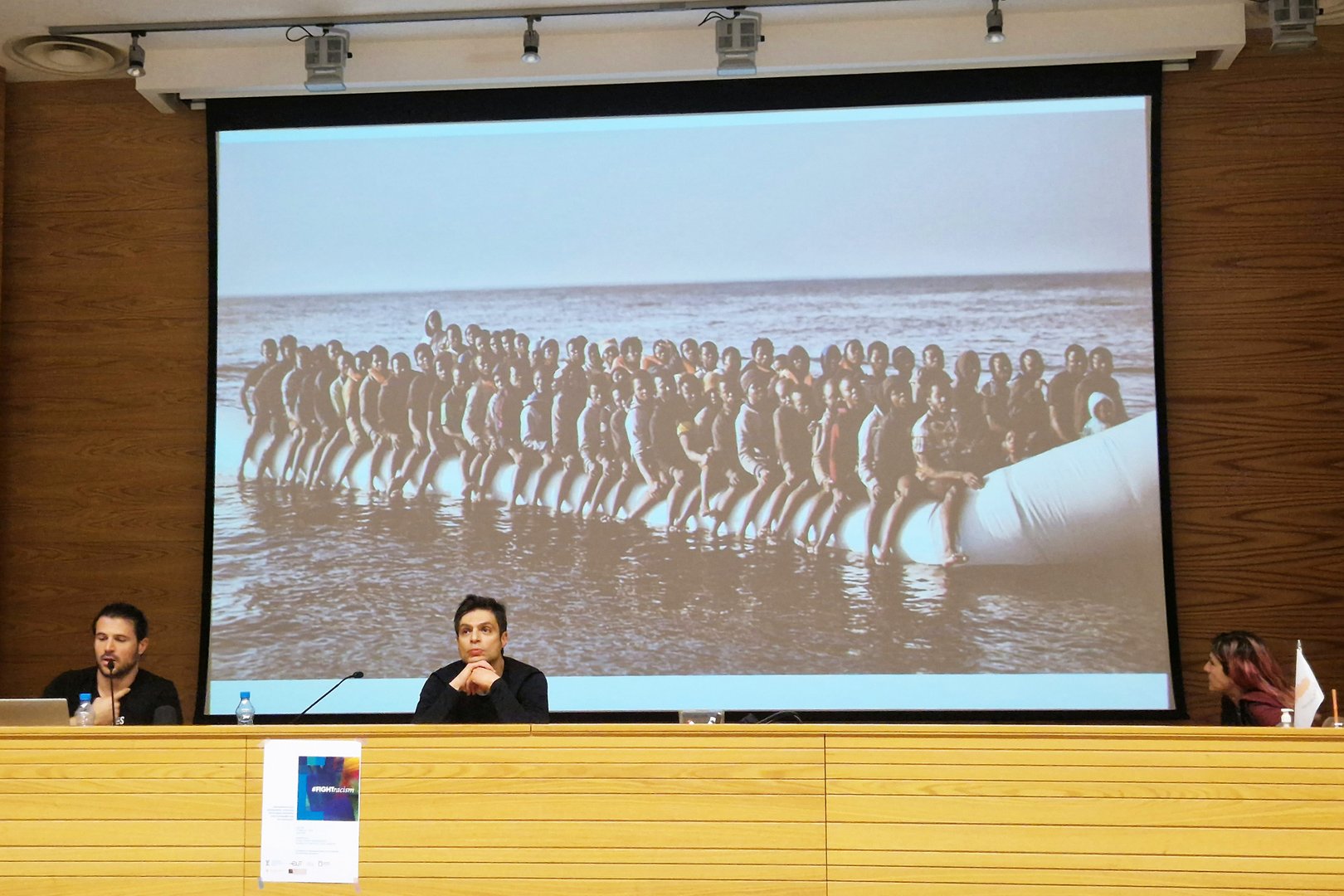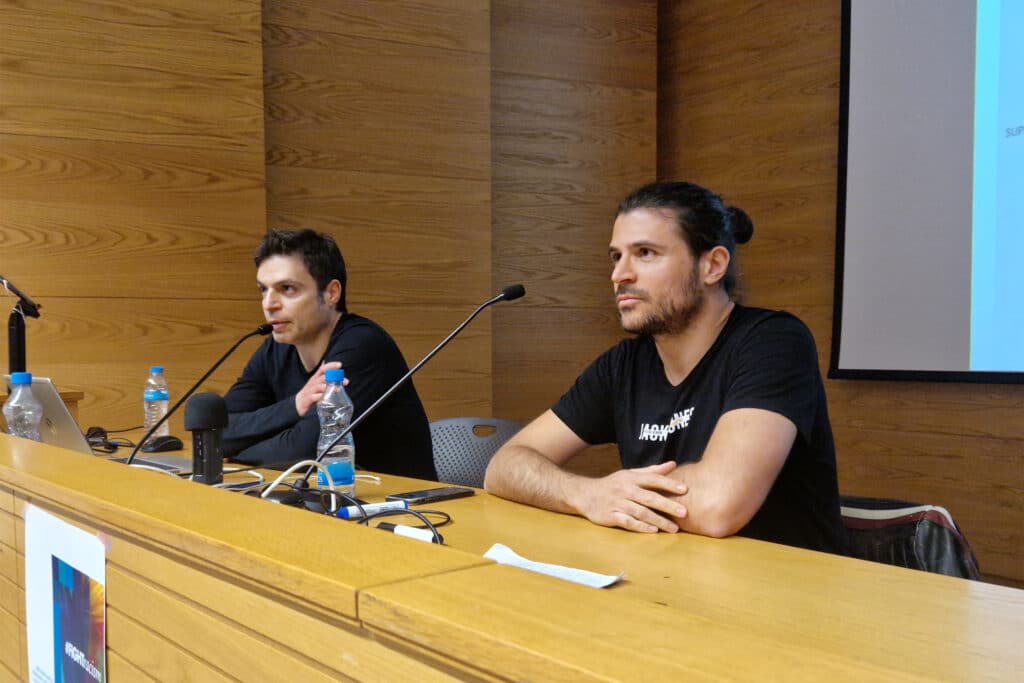The Mediterranean Sea is the deadliest passage on the planet, activist Jason Apostolopoulos said, at an event held recently at the Cyprus University of Technology (Tepak).
The event, during which the findings of an opinion survey on Cypriot perceptions about refugees, asylum seekers and migrants was presented, was held on the occasion of International Day for the Elimination of Racial Discrimination.
Apostolopoulos spoke about the death count at sea and how the EU is directly implicated in the tragedy.
In the last seven years, over 23,000 people have died because of EU policies, Apostolopoulos said. The policies are part of a conscious determination not to rescue refugees, by ignoring danger signals, criminalising rescue, and forcing refugees to take longer routes with no offer of safe passage, the activist claimed.
“It is terrible how many people are lost every day and we will never know [the exact numbers due to] the so-called ‘invisible shipwrecks’, since in several cases broken inflatable boats are found without any trace of life,” Apostolopoulos said.
The activist referred to the wooden boats used by many to attempt their escape, as ‘floating coffins’, where people are piled into holds and some die of suffocation, with the living travelling beside the dead for hours.
Apostolopoulos noted that most refugees are torture victims from Libya, who can’t swim, but nonetheless prefer to take their chances and get away by sea.
A UN fact-finding report on Libya, released on Monday, expressed deep concern over the wide array of war crimes targeting migrants in that state.
The international community should pay more attention to EU agreements that are destructive for human rights, Apostolopoulos said.
According to the UN High Commissioner for Refugees, sub-Saharan Africa hosts more than 26 per cent (over 18 million) of the world’s refugees. Many of these refugees, Apostolopoulos explained, start their journey there, attempting to cross the desert and escape through Libya.
Even more perish in the Sahara than at sea, tracked down by gunmen, while those who do manage to reach Libya are arrested and held in makeshift centres, where they are tortured to death. Their captors post ransoms for their release and if not paid, the captives are trafficked or executed.
The EU directly finances these “detention centres” included in its so-called anti-immigration planning, and intends to build more, in line with its official position that north Africa is the place to stem the flow of migrants to Europe.
“With the declaration of Malta, signed in 2017, the EU committed to funding the Libyan coastguard, a de facto militia, with the aim of intercepting refugee boats. The EU has basically signed an agreement to return refugees to slave markets,” Apostolopoulos said.
The Libyan militia gets paid per number of refugees they stop. “And they show great zeal in capturing people,” Apostolopoulos said, “basically playing a game of chase to find them before the EU-funded coastguard does.”
Apostolopoulos described seeing Libyan coastguards removing life jackets provided by his team for refugees, so that they would not survive.
Emilia Strovolidou, representative of the UN High Commission for Refugees (UNHCR), also spoke at the event, noting that in Cyprus there are approximately 36,500 asylum seekers and 16,400 recognised refugees.
Newly arrived asylum seekers face many challenges on the island, both in terms of their first reception in Pournara, and in their subsequent transition to the community, the commissioner said.
Among them are lengthy delays in application processing, limited work access, lack of housing and public assistance, and a shortage of programs aimed at social integration.
Strovolidou emphasised the need for a comprehensive integration plan and expressed hopes that such a plan, which has been two years in the making, will soon be adopted by the new government.
“The main step towards integration is the creation of a welcoming society without discrimination, xenophobia and racism,” Strovolidou concluded.








Click here to change your cookie preferences